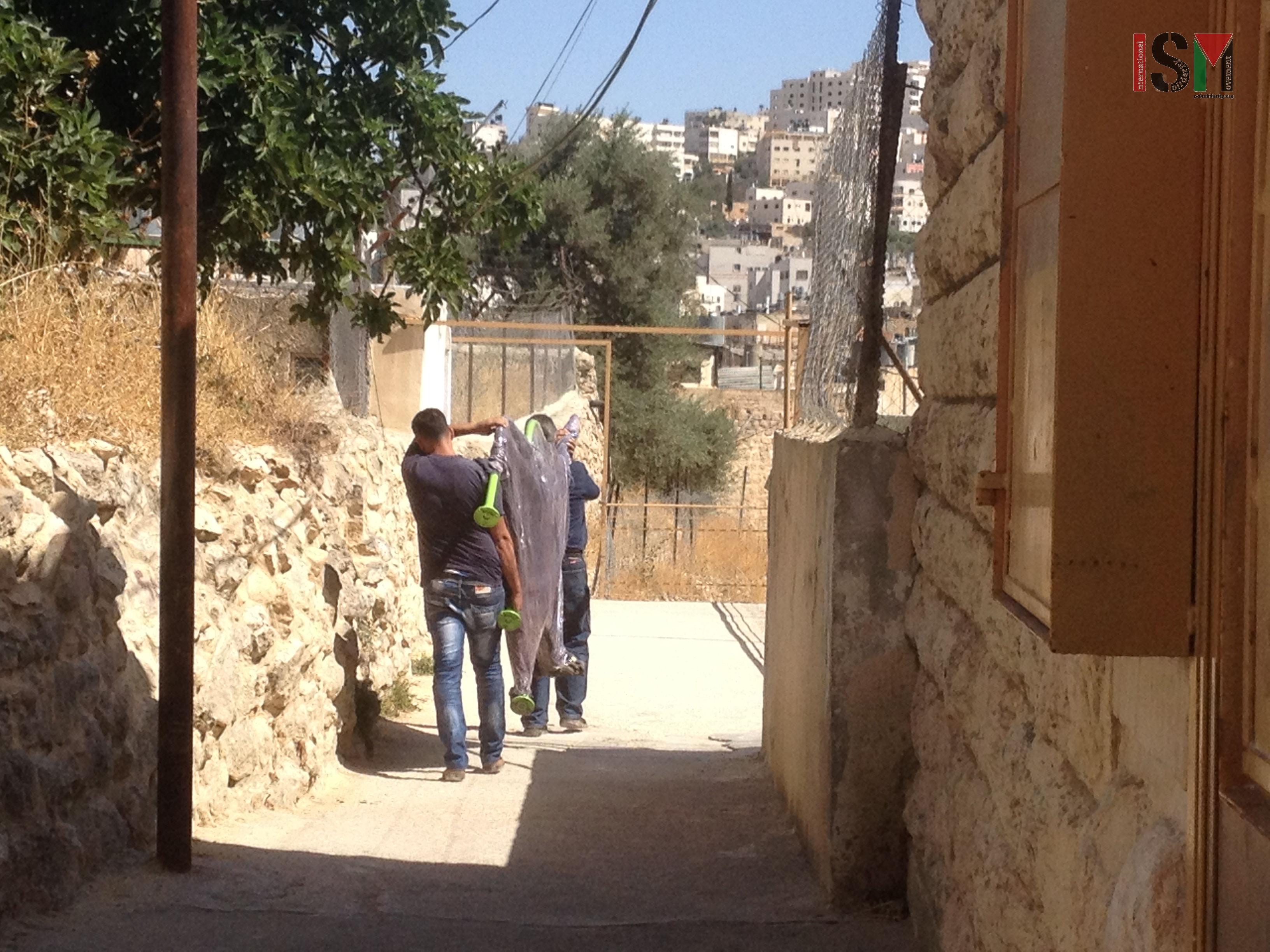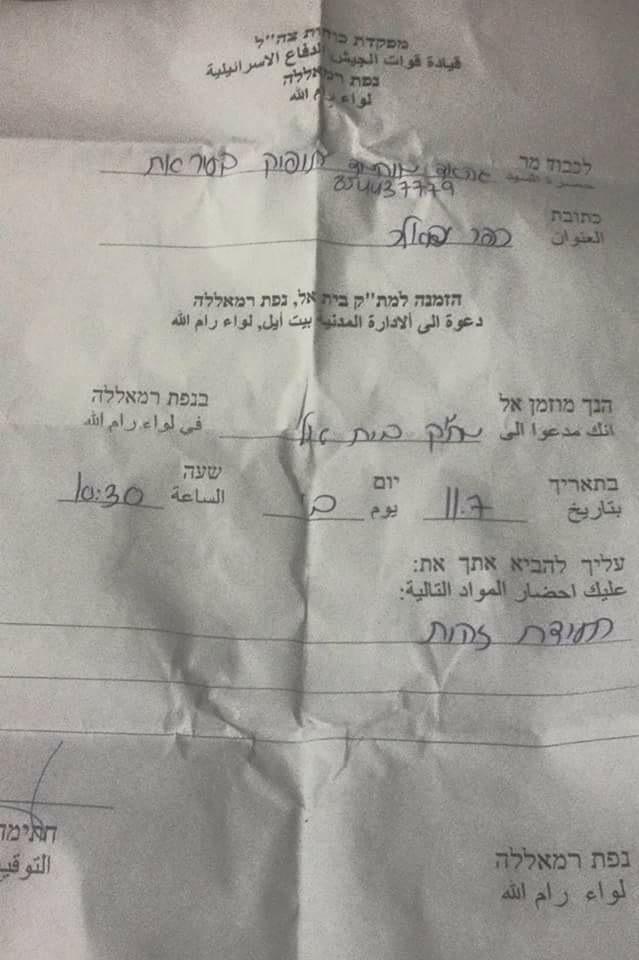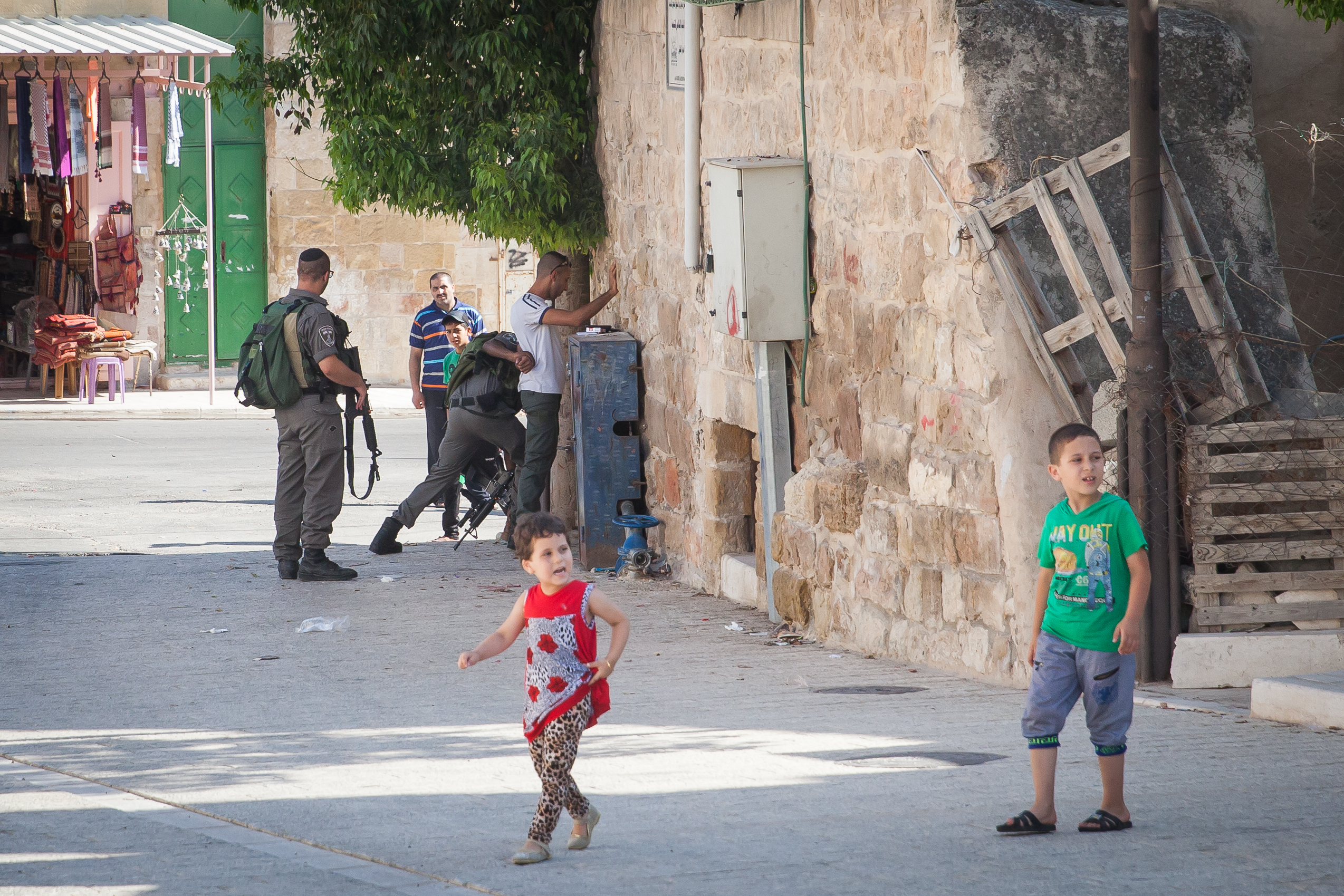Tag: Ethnic Cleansing
-
Right to play? Palestinian children in occupied al-Khalil
29th June 2016 | International Solidarity Movement, al-Khalil team | Hebron, occupied Palestine In occupied al-Khalil (Hebron), possibilities for Palestinian children to play are scarce. With the help of the Playgrounds for Palestine project, a brand-new playground was installed at Qurtuba school in the Tel Rumeida neighborhood of al-Khalil. Right to play – can you…
-
Occupation forces issue notice for Palestinian, dead for 22 years, to report for interrogation
12th July 2016 | International Solidarity Movement, al-Quds team | Kufr Malik, occupied Palestine On July 9th at 4:00 in the morning, the Be’rat family awoke to find Israeli soldiers pounding on the door of their home in Kufr Malik, demanding that Jihad, the son of Mohammed Tawfik and Nadia Mustafa, report for interrogation. Jihad,…
-
The impossibility to know – navigating the (psychological) siege of Hebron
8th July 2016 | International Solidarity Movement, al-Khalil team | Hebron, occupied Palestine Israeli forces during the last week of the Islamic holy month of Ramadan have increased and stepped up restrictions for Palestinians in occupied al-Khalil (Hebron). Thus they are severely limiting Palestinians possibilities to exercise their religion during this most important month in…



